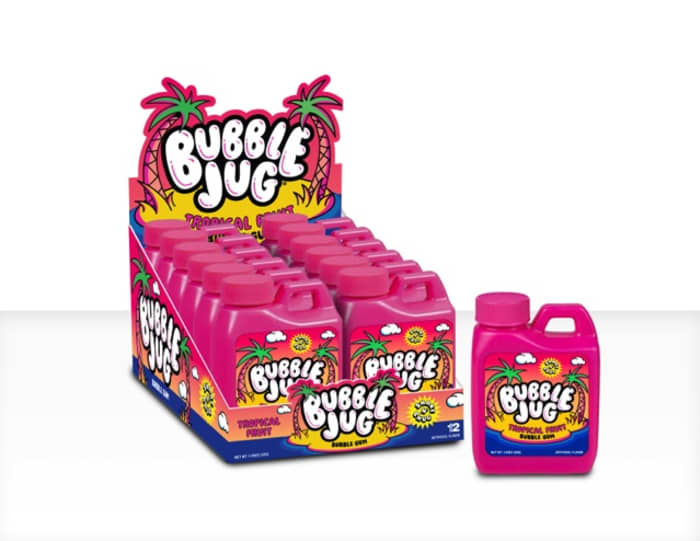Fans of old-school sweets got some disappointing news last week: Fruit Stripe gum, a brand with a history that stretches back half a century, is no longer.
Now comes the real question: When can we expect it to be revived?
There’s a retro fervor sweeping the candy scene. Brands that were all but lost to time have come back and found a faithful following among those who remember them fondly from way back when. And, in some cases, they’re tapping a new candy-curious market.
Take Iconic Candy, a New Jersey–based company that has successfully revived such confectionary brands as Regal Crown, Reed’s and, most recently, Creme Savers. The business also plans to relaunch a number of chewing-gum brands in the coming months, including the novelty favorites Bubble Jug and Ouch! Bubble Gum.
It all adds up to annual sales in the eight figures, said Kenny Wiesen, chief executive officer of the privately held company. And those sales have been growing at an annual rate of 20% to 40%, he added.
“Nostalgia is a real driving force these days, whether it’s in music, fashion or food,” Wiesen told MarketWatch.
Not that every retro product is guaranteed to sell — and Fruit Stripe, a gum known for its colorfully striated look and packaging, had clearly lost its appeal.
Ferrara Candy, the suburban Chicago company behind the brand, told ABC News that the “decision to sunset this product was not taken lightly.” The company added that it weighed consumer preferences and purchasing patterns before making the call to discontinue Fruit Stripe.
Officials with Ferrara did not respond to a MarketWatch request for comment.
Still, even Ferrara appears to be bullish about the retro-candy market. The company continues to sell a number of old-school brands, such as Atomic Fireball, Boston Baked Beans and Jujyfruits.

Bubble Jug, a gum brand introduced in the 1990s, is being brought back this year by the company Iconic Candy.
Iconic Candy
In any case, Americans haven’t lost their sweet tooth. Candy sales reached $ 42.6 billion in 2022 and are expected to climb to $ 54.3 billion by 2027, according to the National Confectioners Association, an industry trade group. Nostalgia is definitely a factor in the industry’s recent success, said NCA representative Carly Schildhaus, who noted that consumers have looked to the past as a form of comfort, especially during the COVID-19 pandemic.
Bre Metcalf-Oshinsky, a marketing expert with BMF, a New York–based marketing agency, said that the current social and political climate, with wars being waged in Ukraine and the Middle East, adds to that desire for nostalgic comfort. Candy has a special appeal in that regard, she said, because it’s “a representation of childhood and simpler times.”
For companies looking to bring old-school candy brands back to life, however, there can be considerable challenges. There’s the cost of acquiring a dormant brand’s trademark and assets, to say nothing of the expense of the manufacturing equipment needed to produce it. The tally can easily run into the six figures, Wiesen said.
Even then, it can be hard to get things exactly right. When Wiesen was looking to bring back Regal Crown, a brand known for its sour-cherry hard candies, he had to track down people in England who were involved in the original production in order to get the recipe and process just right.
And getting it right is critical, Wiesen noted. That’s because fans of these candies have very specific memories of what they tasted like and can be particularly unforgiving if a relaunched version doesn’t measure up to what they recall.
“People will rail about how you’ve cheated them,” Wiesen said.
So can we expect a possible return of Fruit Stripe? Those in the industry note that it’s possible Ferrara could decide to bring the gum back itself, or that it could sell or license the brand to one of the companies that are riding the nostalgic-candy wave.
Wiesen said Iconic Candy would certainly be willing to consider an acquisition. “We are very interested in it,” he said.
